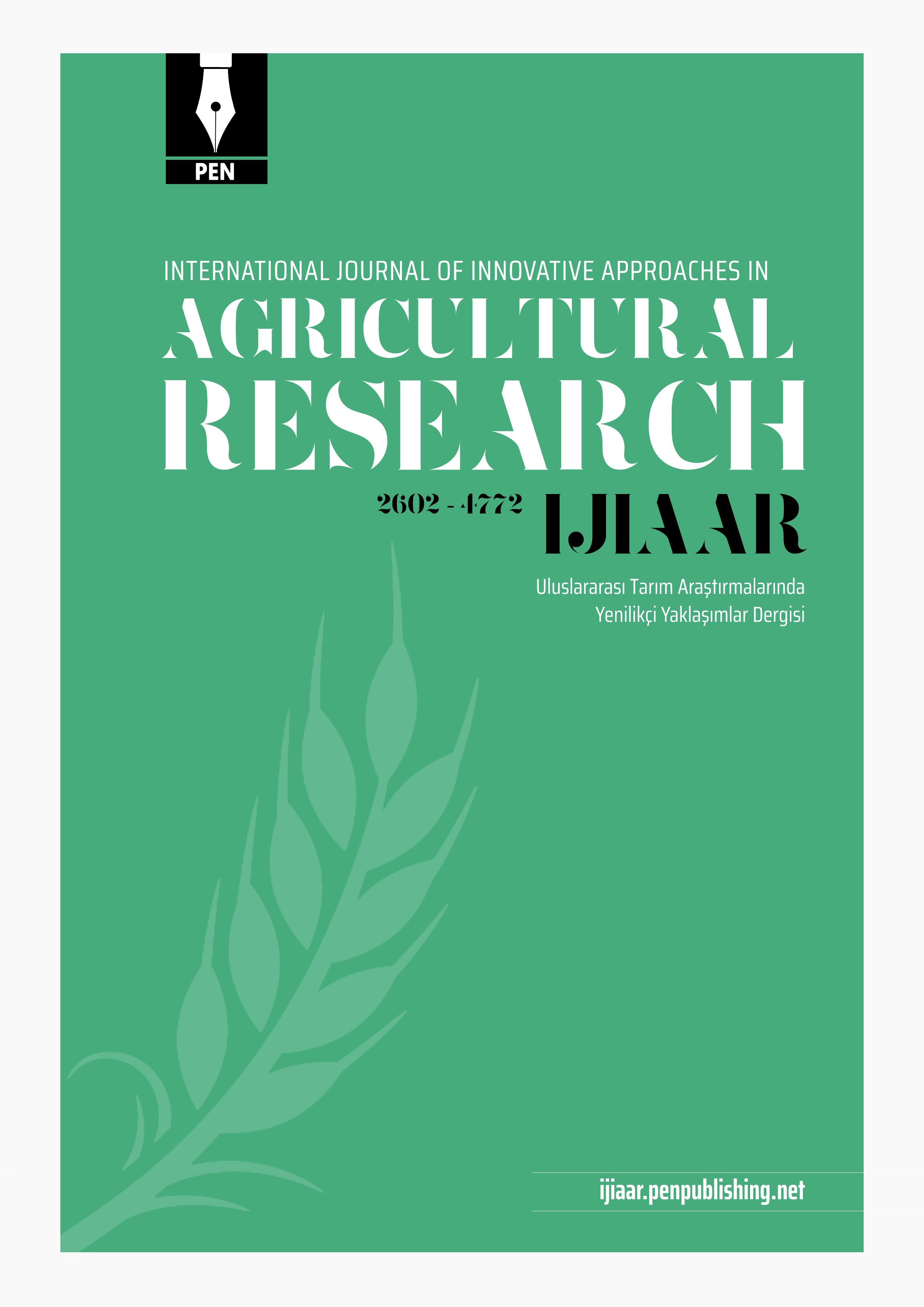
Uluslararası Tarım Araştırmalarında Yenilikçi Yaklaşımlar Dergisi
Yazarlar: Rangel Dragov, Dechko Dechev , Krasimira Taneva
Konular:-
DOI:10.29329/ijiaar.2019.206.6
Anahtar Kelimeler:Durum wheat,Genetic distance,Breeding,Economic traits
Özet: The durum wheat breeding program in Field crops institute FCI - Chirpan started in 1928. In the last ten years, a number of varieties have been created to meet modern cultural requirements. Genetic distance is of great importance for the success of the combining breeding. In the study are included 13 varieties created over the last 10 years and 8 of the Institute's best advanced durum wheat breeding lines. The field experiment was conducted in experimental field of FCI-Chirpan during 2015-2017 year. A randomized block design in four replicated was used with a trial plot size of 15 m2. A standard farming technology for durum wheat in the country was applied. Tre traits: grain yield, plant height, heading date, test weight, 1000 kernel weight, protein content, wet gluten and vitreousness were observed. The means of three-year trials for all studied traits were calculated and genetic differences between genotypes were found. The coefficients of variation (CV%) obtained for the individual traits show that the heading date and grain yields are the most variable. The correlation analysis determines significant coeficients for 9 out of 28 possible combinations of traits. The multivariate methods for determining the genetic distance between the involved genotypes in the study were used. According to the dendrogram of the cluster analysis, the distances between the four main groups formed are determined. The applied graphical PC analysis shows the interrelations between the traits and the grouping of genotypes in terms of the genetic distance between them. These methods can help for faster breeding progress using the established genetic distance as the basis for deploying the breeding program.